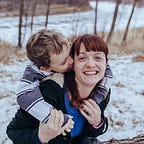ADHD And Autistic Assets
The strengths and gifts of divergent minds
So much of the literature on ADHD and autism focuses on our deficits, painting us as “disordered”, pathologizing our very existence. Yes, neurodivergent people struggle, as do neurotypical people.
We may experience more challenges due to our neurology, but in many cases, our challenges stem from lack of understanding and accommodation in general society.
Worse, we sometimes encounter ableism or neuronormativity — the idea that being different is inherently worse, or “less than” when compared to the statistical norm — in our own co-workers, family, and friends.
I work as an advocate and provide support for neurodivergent people, often children. A significant part of what I do is teach their families and schools about their neurotype, and how best to support that child. Another important aspect of my work is helping the child understand their own neurology, and helping them find their strengths.
By the time a child is identified as neurodivergent they’ve already encountered difficulties, otherwise they wouldn’t have been referred for assessment in the first place. This often takes a toll on children and on their self-concept. Many don’t want to be “weird” or different, they just want to fit in with their peers.
